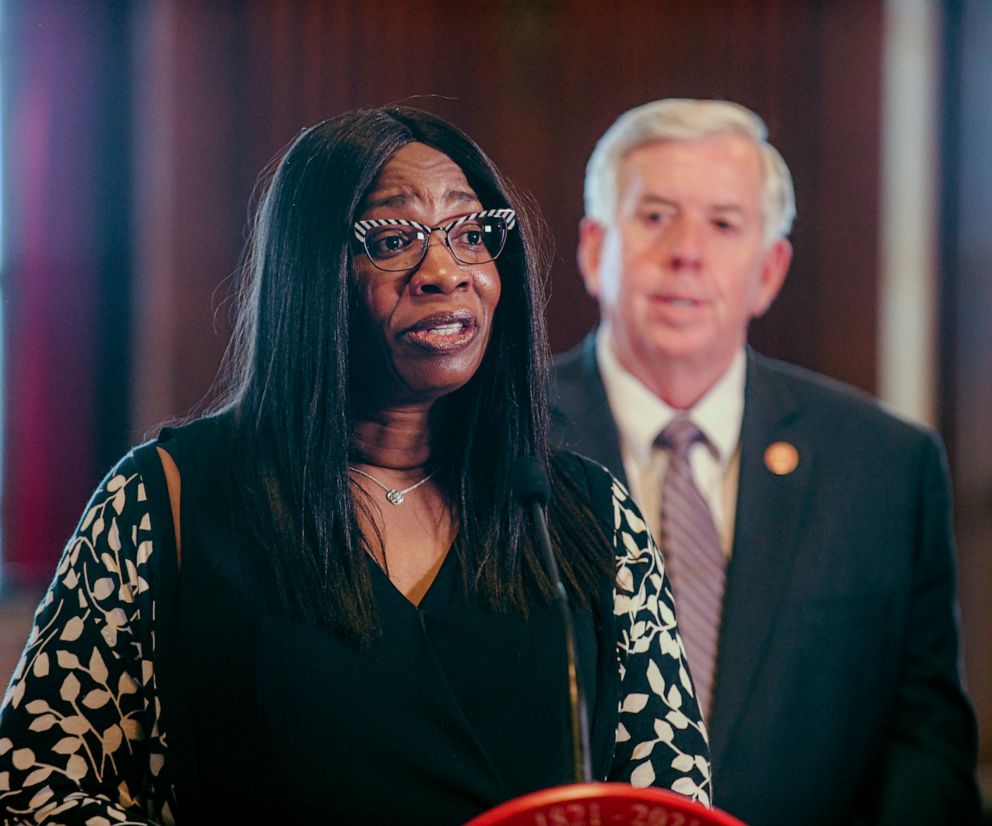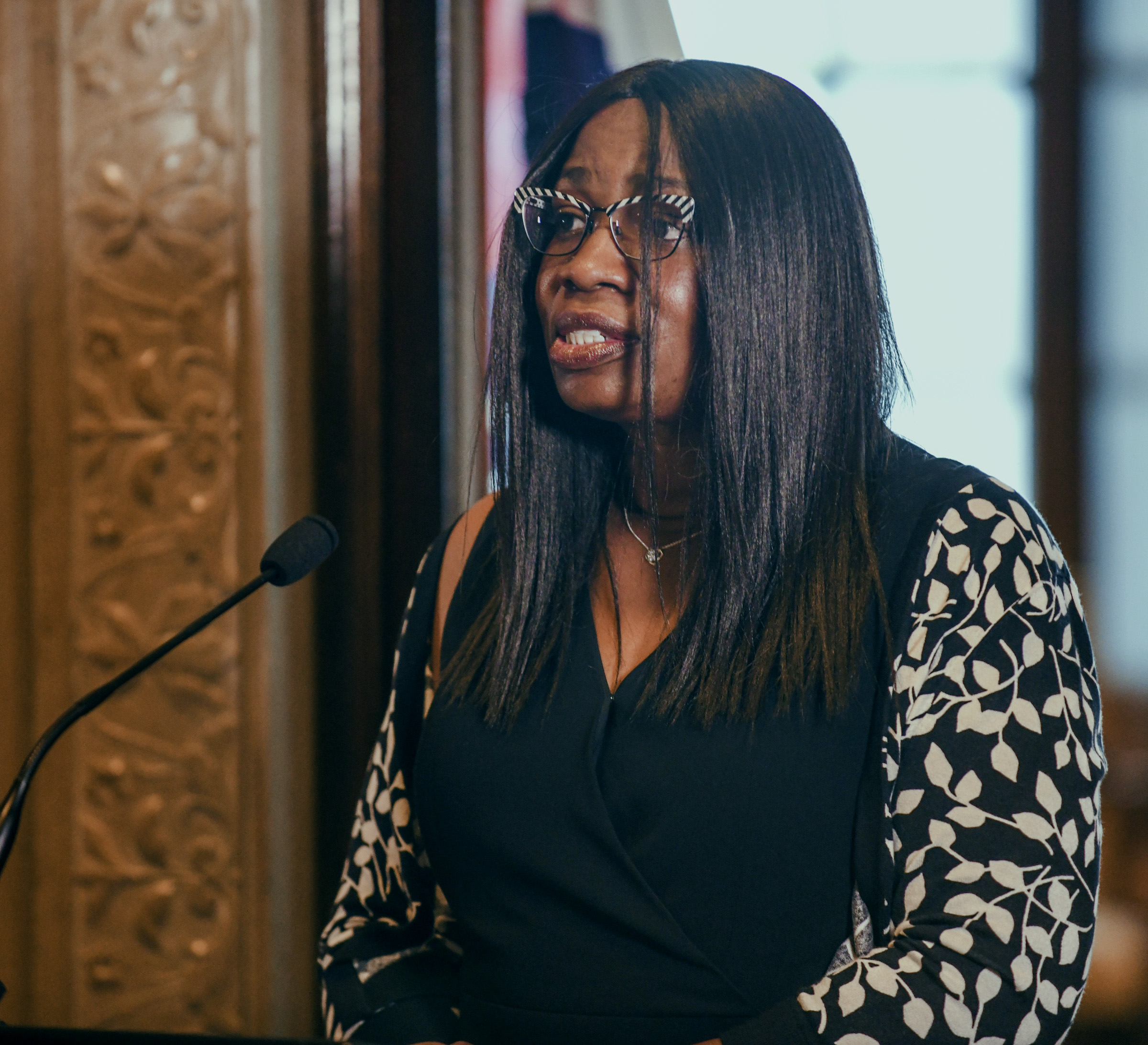Missouri's 1st Black female Supreme Court judge reflects on her historic position
Judge Robin Ransom is making history as the first Black woman to be appointed to the Missouri Supreme Court. She joins 12 other Black women who are serving on the highest court in their respective states across the country.
When she got the news from Gov. Mike Parson, Ransom said there was a lot running through her mind now that she had achieved what she considers to be the height of her career.
"Thinking about my mom, my dad, just your normal childhood struggles," Ransom said. “It was just a lot to take in.”
In the announcement of the groundbreaking appointment, Parson said Ransom “will add valuable experience, perspective, and balance to the court.”
"Appointing a judge to the Supreme Court of Missouri is an important duty that I do not take lightly. I am proud and honored to name Judge Robin Ransom as the newest member of the state’s highest court," Parson said in a statement.

Ransom is the daughter of a firefighter, who lived and worked in a segregated engine house in St. Louis before she was born. She said her father shared these stories of discrimination to her, but never passed on the bitterness he felt.
What he did pass on, she said, was confidence and perseverance.
“He was very much into: Walk straight, walk with your head up, make sure that you look people in the eye, shake hands, speak clearly and be proud of who you are,” Ransom said.
Ransom herself grew up in a segregated city. She had to take two buses to the predominantly white part of town to participate as one of the only Black people in an almost all-white bowling league. Soon enough, her father took her out of her majority-Black school and sent her off to a school with mostly white children.
"I've always just been very comfortable in my skin," Ransom said. “I like to tell people: ‘When I walk into a room, it's very apparent that I'm a Black female. We don't have to talk about it. But I'm also very comfortable talking about it if you want to talk about it.’”
She said her father's efforts to integrate her life with people who didn’t look like her meant she had no choice but to get comfortable in her own skin.
But the fact that racial discrimination still exists today is why Ransom says diversity in the justice system is vital to ensuring that it functions correctly.
She said that when litigants look at the bench or look at the attorneys and see someone who looks like them, it gives them comfort that they’re “going to get a fair shake.”
“Everybody should be represented, and everybody should have a seat at the table,” Ransom said. "So diversity, whether it's in the attorneys, the judges, the bailiffs, even our legislatures, people who are writing the laws, we need people of all shades and colors so that everybody feels that they have a seat at the table.”

Although she identifies closely as a strict constructionist -- "the words are what they are, and the words mean what they mean” when it comes to interpreting the law -- she said the recent educational debate about racism's role in the country's history is simple.
“Racism has been part of this country, and it's been threaded through a lot of things and a lot of processes that we follow today,” Ransom said. “The history is important. ... And if you can't remember your past, they may repeat in the future. You’ve got to know what your missteps were. But really, for me, I try to focus going forward on today and making sure that things happen correctly today.”
Ransom is filling a vacancy left by the retirement of Judge Laura Denvir Stith in March.
Ransom previously served as a judge on the Court of Appeals Eastern District and as a circuit court judge, as well as a prosecutor for St. Louis County.
She also holds a law degree from the University of Missouri-Columbia School of Law and an undergraduate degree in political science and sociology from Douglass Residential College-Rutgers University.
“I have high confidence that she will continue to be a fair enforcer of the law, faithfully interpret the law as written, and reasonably consider decisions made at the trial and appellate level in her own evaluation," Gov. Parson said.




